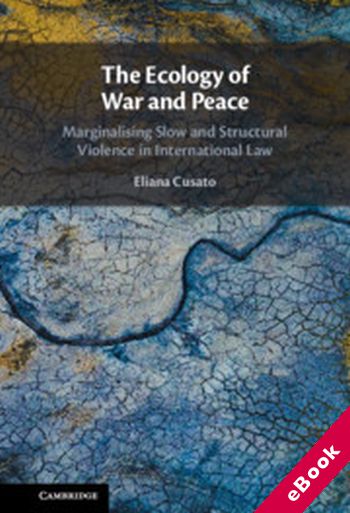
The device(s) you use to access the eBook content must be authorized with an Adobe ID before you download the product otherwise it will fail to register correctly.
For further information see https://www.wildy.com/ebook-formats
Once the order is confirmed an automated e-mail will be sent to you to allow you to download the eBook.
All eBooks are supplied firm sale and cannot be returned. If you believe there is a fault with your eBook then contact us on ebooks@wildy.com and we will help in resolving the issue. This does not affect your statutory rights.
The connection between ecology and conflict has been the object of extensive study by political scientists and economists. From the contribution of natural resource 'scarcity' to violent unrest and armed conflict; to resource 'abundance' as an incentive for initiating and prolonging armed struggles; to dysfunctional resource management and environmental degradation as obstacles to peacebuilding, this literature has exerted a huge influence upon academic discussions and policy developments. While international law is often invoked as the solution to the socio-environmental challenges faced by conflict-affected countries, its relationship with the ecology of war and peace remains undertheorised. Drawing upon environmental justice perspectives and other theoretical traditions, the book unpacks and problematizes some of the assumptions that underlie the legal field. Through an analysis of the practice of international courts, the UN Security Council, and Truth Commissions, it shows how international law silences and even normalizes forms of structural and slow environmental violence.